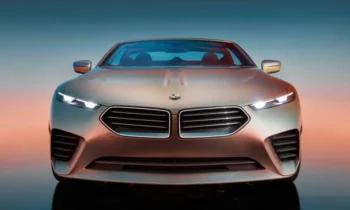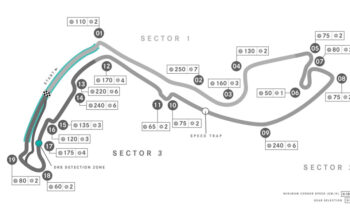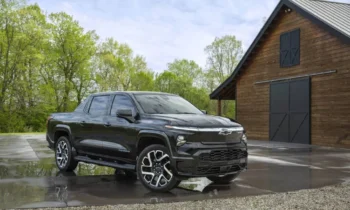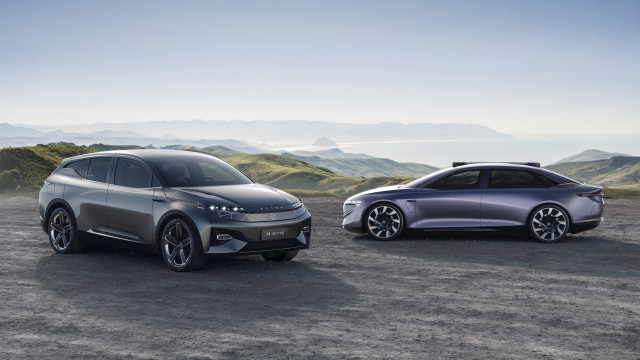
Byton M-Byte and K-Byte
Tesla vehicles have earned a reputation, boosted by YouTube reaction videos, for their blistering, dragstrip-worthy, straight-line acceleration. Porsche is getting into the electric performance game with even more fervor. The German luxury marque aims for the pedigree of Nürburgring times and track-ready handling with its upcoming 600-plus horsepower Taycan.
The Chinese-funded startup electric-car maker Byton, however, places performance bragging rights and sport-sedan pedigree low on its list of priorities. It has other targets in mind for its upcoming M-Byte crossover, due to go on sale in 2020, and K-Byte sedan that will arrive a year later. Both will be built on a completely new vehicle architecture with 71-kwh or 95-kwh battery packs, rear- or dual-motor drive configurations, and DC fast charging at about 150 kw.
“For Byton, we’re very clear this car is going to be a ride car, this is going to be a supremely comfortable car, a very, very quiet car,” said Byton’s chief engineer, David Twohig, with a smirk. “If you want to set a track record on Laguna Seca, go and buy another car.”
Playing the comfort card, with no qualms
He knows that’s going to raise eyebrows. “We’re not trying to market this thing as a sports car…we’re very focused on one item, which is a very comfortable car,” he told Motor Authority in an interview earlier this month at CES.
“It’s very easy to get an electric car to have impressive 0-60 times; it was interesting 10 years ago, it’s no longer interesting,” said Twohig, noting that electric cars cab even leave black lines on the tarmac.
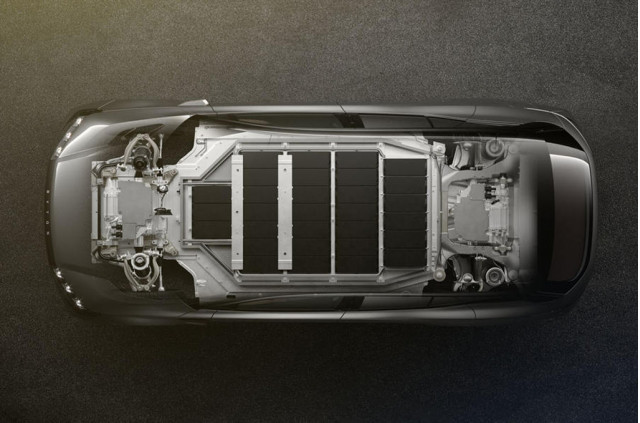
Byton concept, 2018 Consumer Electronics Show
“The danger now is to say well, the thing accelerates like hell, therefore it’s a sports car, right? Wrong. And to say, well, to go around corners let’s stiffen the suspension up like hell. And I’ve now got a relatively heavy car with a very stiff suspension that accelerates like hell; but that isn’t a sports car.”
A false enthusiast market for EVs?
Twohig believes performance is a trap that some EV makers have fallen into, “And they’ve tried to kind of create this false enthusiast market,” he said.
Twohig says that without a focus on performance numbers, Byton’s chassic engineers are free to tune the springs, dampers, and anti-roll bars, as well as the digital tuning of the chassis, to very clear targets. “We’re trying to think of everyone in the car, not just the guy or girl in the driver’s seat,” he said.
“That becomes even more important when the car is driving itself, and you are no longer the input, you’re simply receiving the acceleration outputs, be they longitudinal, vertical, or lateral. If the input is coming from the machine, all you get is the lateral acceleration. And it’s unpleasant.”

